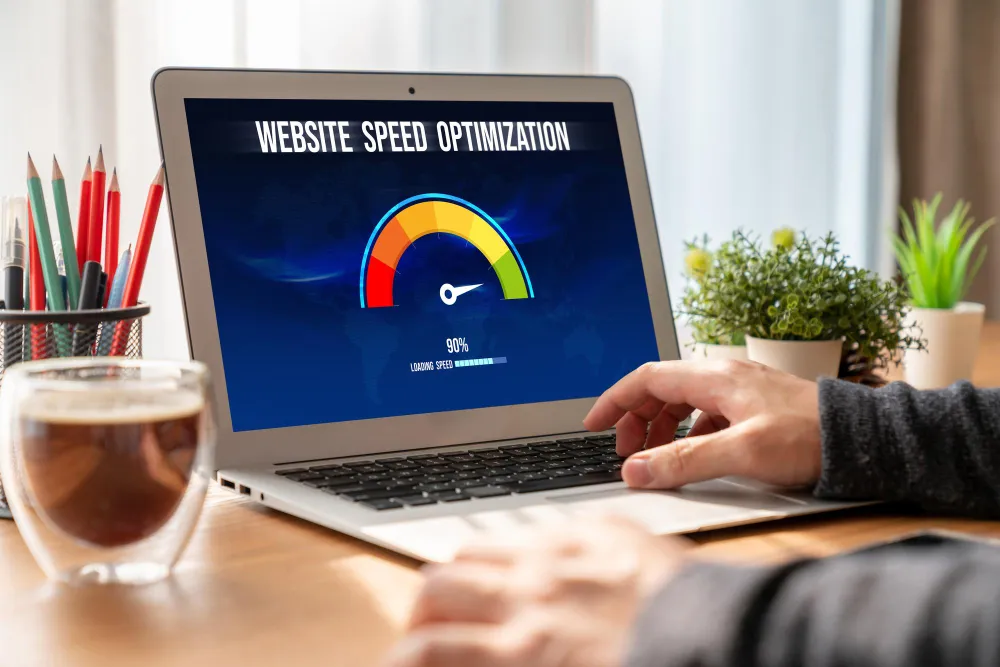Website Speed Isn’t Just UX — It’s a Ranking Factor
In 2025, Google doesn’t just reward websites that look good — it rewards those that load fast. That’s why site speed is a critical part of technical SEO.
If your site takes more than 3 seconds to load, you’re losing both rankings and revenue — especially in a competitive market like Vancouver.
Studies show that every extra second of load time drops conversions by up to 20%.
The 3 Speed Metrics Google Cares About (Core Web Vitals)

These are the user-focused speed signals Google uses in ranking:
1. Largest Contentful Paint (LCP)
Measures how fast your main content loads. Target: under 2.5 seconds
2. First Input Delay (FID)
How long it takes for the site to respond when someone clicks or taps. Target: under 100 ms
3. Cumulative Layout Shift (CLS)
Measures visual stability. Target: under 0.1
We explain these in detail in our Technical SEO Services.
How Site Speed Affects SEO
- Slower sites are crawled less often
- Higher bounce rates = lower dwell time
- Mobile-first indexing means your phone speed matters most
- Page speed now influences ranking directly — especially on mobile
How to Check Your Website’s Speed

Use free tools like:
Need help interpreting the results? Try our DIY SEO audit or contact us.
7 Ways to Improve Your Website’s Speed (Fast)
1. Compress & Lazy-Load Images
Use WebP format and make sure images load only as they appear on screen.
2. Minify CSS, JS, and HTML
Tools like Autoptimize (WordPress) or built-in Shopify settings can help.
3. Remove Unused Plugins or Apps
Extra tools = extra code. Audit your stack quarterly.
4. Use a CDN (Content Delivery Network)
Services like Cloudflare speed up delivery across Canada and globally.
5. Switch to a Faster Hosting Provider
Shared hosting = bottlenecks. Consider VPS or managed hosting.
6. Implement Caching
Page caching drastically reduces server load.
7. Optimize Mobile Design
Responsive is no longer enough — design mobile-first.
We cover all of this in our website design services.

A Real-World Example
“Our bounce rate dropped 30% and our rankings improved across 12 keywords just from improving speed. We didn’t even touch the content.”
— Marketing Manager, Richmond Ecommerce Brand
See full results in our case studies.
TL;DR — Speed = Rankings, Revenue, and Retention
If your site is slow, you’re not just losing visitors — you’re giving your competitors the upper hand.
Curious how you stack up? We can test and fix everything in one go.
Let’s Fix Your Site Speed for Good
📈 Explore our SEO & performance services




